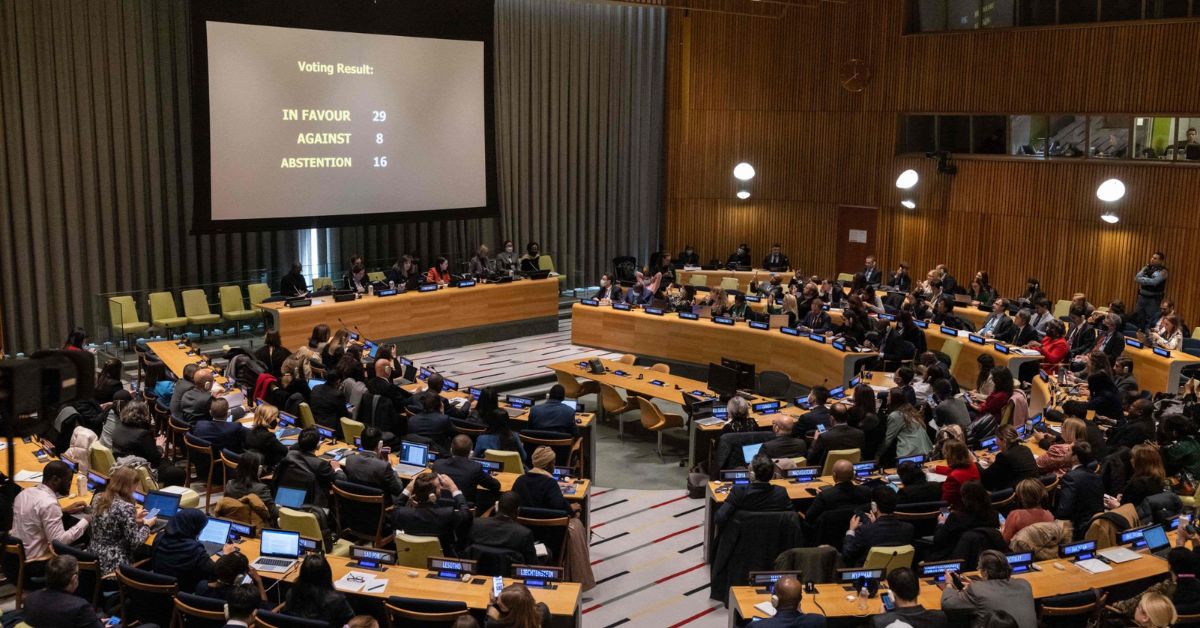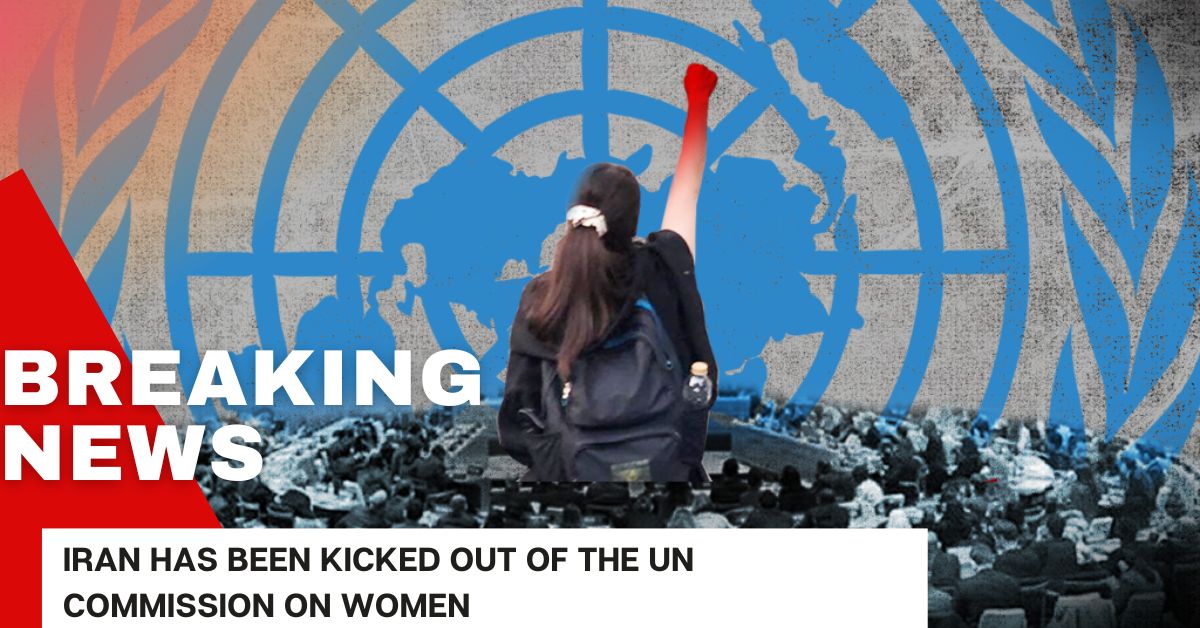Iran’s membership in a key UN women’s rights body was terminated by member nations just a few short months after the country joined the group. Iran is currently being rocked by an ongoing protest movement that was ignited by the death of a young woman while she was in the custody of the country’s so-called “morality police.” The unexpected about-face occurs during this time.
Wednesday, the United Nations Economic and Social Council held a vote on a resolution to “remove with immediate effect the Islamic Republic of Iran from the Commission on the Status of Women for the remainder of its 2022-2026 term.” The resolution was proposed by the United States. Twenty-nine members of the Economic and Social Council voted in favor of the resolution.
Eight member states voted against the resolution and sixteen member states abstained from voting. The United States Ambassador to the United Nations, Linda Thomas-Greenfield, delivered a speech to the council on Wednesday and stated that “women and activists have turned to us, the United Nations, for help.” They were very plain and direct in their request to us, which was to remove Iran from its position on the Commission on the Status of Women.
“There is a very simple explanation for this. The Commission on the Status of Women is the primary United Nations organization responsible for advancing gender equality and enhancing the role of women. If it is being undermined from within, it cannot perform the critical work that it needs to. “At this point, Iran’s membership in the Commission is an ugly blemish on the Commission’s legitimacy,” Thomas-Greenfield continued.
Iran has issued a strong condemnation of the US resolution, which it has referred to as an “illegal request” and argued that it undermines the rule of law within the United Nations. According to the Iranian state news agency IRNA on Wednesday, Iran’s ambassador and permanent representative to the United Nations, Amir Saeed Irvani, stated that the resolution to remove Iran was constructed on “baseless assertions and concocted justifications utilizing phony narratives.”
Iran had only recently begun its four-year term on the 45-member Commission on the Status of Women, which was established to advocate for gender equality on a global scale. Iran was elected to the body in April, and just recently began its membership in the commission.
In recent months, the country has been shaken by widespread demonstrations that were sparked by the death of Mahsa Amini, who was 22 years old and had been detained in Tehran by a police unit that enforces stringent dress codes for women, such as the requirement that they wear a headscarf. Mahsa Amini passed away after being detained in Tehran by this police unit.
Since then, the protests in Iran, which are frequently organized by women, have converged around a wide variety of complaints regarding the regime. There have been reports of demonstrators being subjected to forced detentions and other forms of physical abuse by authorities as part of a deadly crackdown that has been unleashed on the country’s Kurdish minority community.

More News:
- Who Is This Guy? The “Merchant Of Death,” A Russian Arms Dealer, Was Traded For Brittney Griner
- Errol Spence’s Car Was Totaled In An Accident Caused By A Young, Unlicensed Driver
“A Trip With A Thousand Lies”
In response to the vote, another member of Iran’s UN delegation said, “My delegation condemns any politicization of women’s rights and rejects all accusations made by the US and some EU members in particular.”
She also talked about how Iran’s “rich culture and well-established constitution” help the country “promote and protect women’s rights.” She said that Iran is a “progressive society that takes into account the needs of its women and girls, listens to what they have to say, and works toward a better future for and with its women and girls.”
In a March 2021 UN report, women and girls were called “second-class citizens” because of how they were treated. The report said that girls between the ages of 10 and 14 were getting married a lot, that protections against domestic violence were weak, and that women didn’t have enough legal rights.
“There is clear discrimination in Iranian law and practice, and this needs to change. Iranian women are limited or need permission from their husbands or paternal guardians in many areas of their lives, such as marriage, divorce, work, and culture. This takes away their freedom and human dignity. The report’s author, Javaid Rehman, said at the time, “These structures are completely unacceptable and need to be fixed right away.”
After months of protests, Iran’s Attorney General Mohammad Jafar Montazeri said in early December that the country’s parliament and judiciary were reviewing the law that requires women to wear a hijab in public, according to pro-reform outlet Entekhab.
But there is no evidence that the law, which went into effect in 1979 after the Islamic Revolution, will be changed. Louis Charbonneau, the UN director at Human Rights Watch, said that Iran’s removal from the body was a “welcome step,” but that it was still “a far cry” from real accountability.
In a statement to CNN, Charbonneau added, “What’s needed is urgent, coordinated pressure on Iran to stop its campaign of violence, credible prosecutions of the people directly responsible for these appalling violations of human rights, and an end to the severe discrimination against women.”
I hope you like our article. If so, please tell us what you think in the comments. You can also add Journalistpr.com. to your bookmarks to get more updates like these.

Leave a Reply